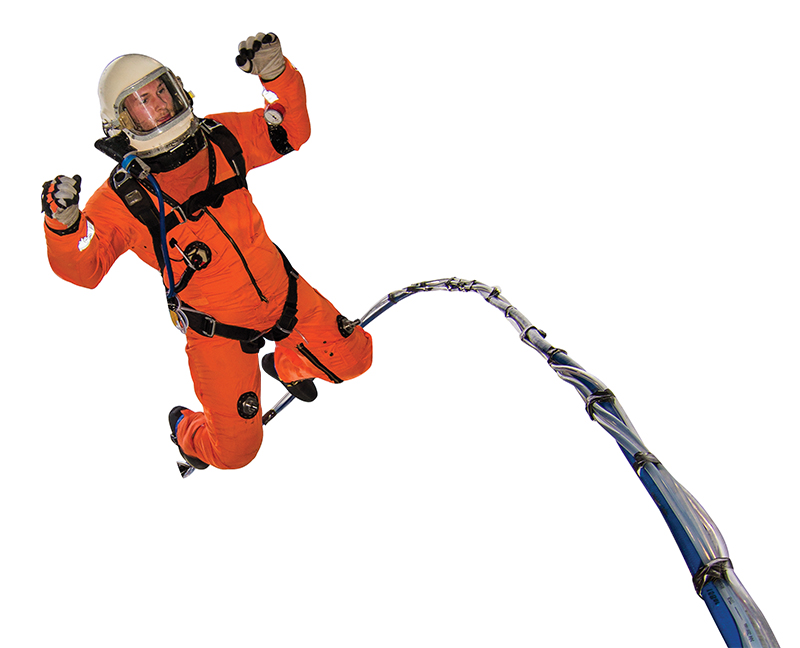

In 2008, Cameron Smith, an anthropology professor at Portland State University in Oregon, decided to build a space suit. He designed the Mark I to protect himself on a high-altitude balloon ride, and so far it’s passed tests in a hypobaric chamber and underwater. Last year, independent space program Copenhagen Suborbitals offered him a potential path to the stratosphere (between about 30,000 and 165,000 feet above Earth). Smith will make a suit for the Danish group this summer, and they’ll help him build a helium balloon craft. Traditional pressure garments can cost upwards of $30,000. Smith’s materials set him back about $2,000, thanks to creative use of junk parts and spare kitchenware. “We’re trying to make it easier for people to get into space,” he says.
Helmet Lock
Smith needed a metal ring to affix the helmet to the suit. Rather than have one machined, he cut the bottom out of a 9-inch stainless-steel pie tin.
Air Exchange
Valves in the side of the helmet blow oxygen over the visor to defog it and prevent carbon dioxide from building up. Another valve scrubs away the CO2.
Safety layers
Smith’s suit is actually four suits: a set of polypropylene long johns (for comfort), an old diving suit (to help pressurize air around the body), a nylon-mesh jumpsuit retrieved from a trash bin (to prevent the suit from swelling like a balloon), and an orange fireproof coverall.
Pressurization
Air pressure at 65,000 feet is about 90 percent lower than at sea level, which can render a person unconscious and boil saliva and tears. The suit protects its wearer by maintaining air pressure of about 25 percent that at sea level.
Temperature control
Without a cooling system, temperatures in the suit climbed to 115 degrees Fahrenheit. So Smith lined the garment with 40 feet of PVC tubing to create a water-cooling system that would maintain a comfortable 70 degrees.
This article originally appeared in the July 2014 issue of Popular Science_._
